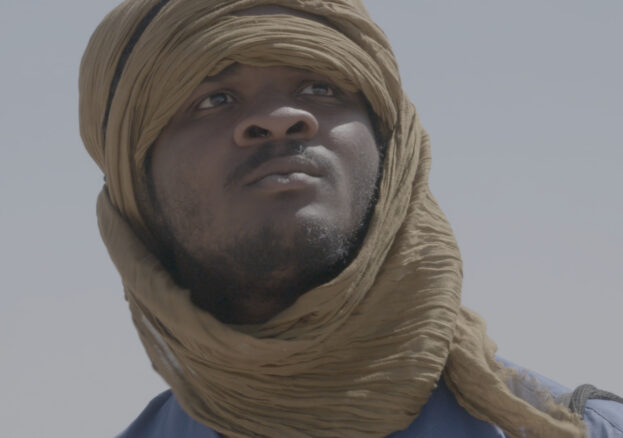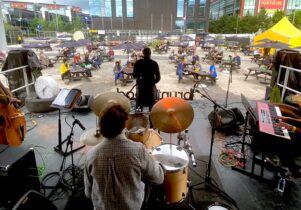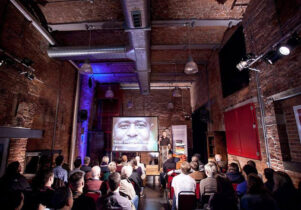African Apocalypse – Streaming on BFI Player
Tom Grieve, Cinema Editor
Documentarian Rob Lemkin’s African Apocalypse sees British-Nigerian, poet and activist Femi Nylander journey from the libraries of Oxford University to Niger in order to follow the path of terror and genocide tread by French Captain Paul Voulet in 1898. Nylander takes Joseph Conrad’s Heart of Darkness as a jumping off point, finding in Voulet a real-life version of the novella’s mythic ivory trader Mr. Kurtz. He arrives in Niger, and checks in to a hotel full of white business men, before embarking upon a journey along The National Road — a highway following Voulet’s massacres, created by felling ancient and sacred baobab trees.
Visiting towns along the road, Nylander finds abiding anger, and people eager to talk about atrocities they are seldom asked about. He encounters uranium miners exploited and endangered by French companies, and forced to supply the product of their labour tax-free until 2014. While one in three lightbulbs in France are powered by Nigerien uranium, much of Niger copes with little electricity. The people Nylander encounters are quick to make the link between the Voulet’s indiscriminate killing and the continuing exploitation at the hands of the French. The colonialist is a compulsory subject within Niger schools, but less famous than Conrad’s mythic villain in the West.
Nylander tracks Voulet’s journey to his grave and in doing so is forced to reckon with his own identity. “Because I am English, I may as well be white.” he observes of the reaction of Nigeriens at one point early on. Nylander was raised in Bolton and he was a demographic outsider at Oxford, and yet in Niger, his identity means that he requires an armed guard in order to travel safely. African Apocalypse functions as an educational corrective and also a brave and fascinating repurposing of Conrad, but it is in the autobiographical elements that it is at its most extraordinary, as Nylander lays himself bare as he struggles to grapple with the sheer weight and complexity of generational trauma.






























